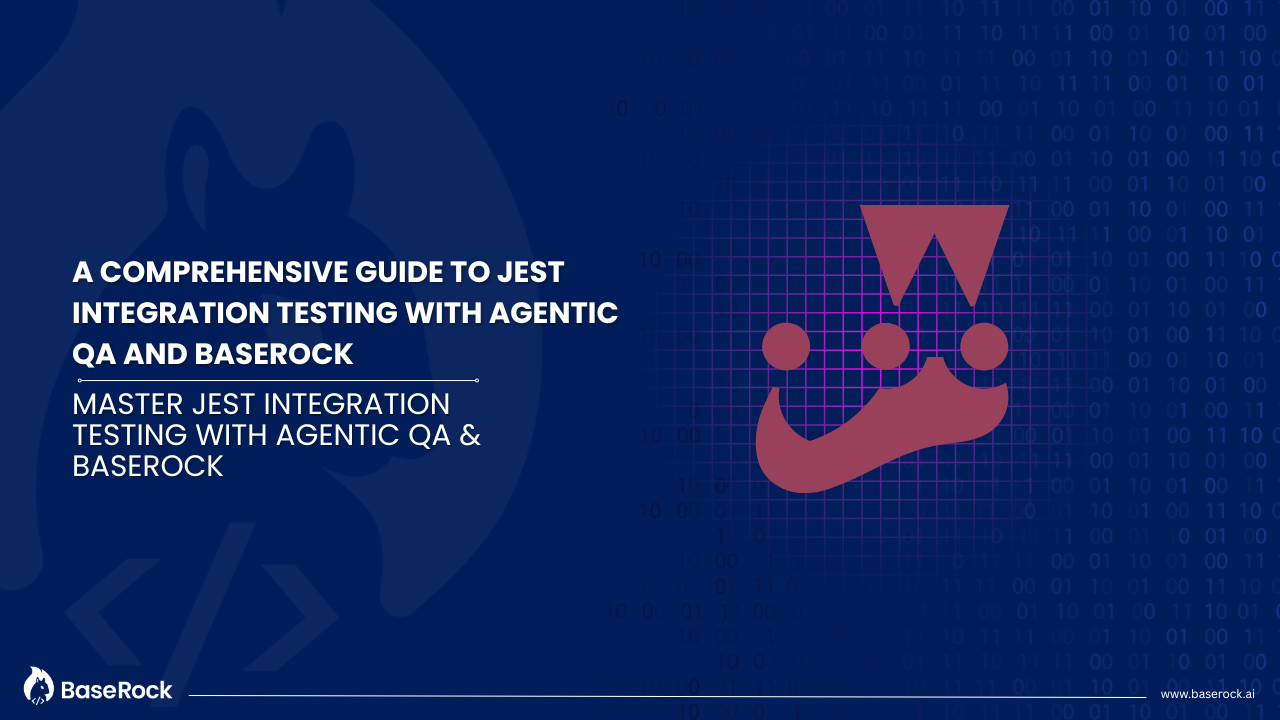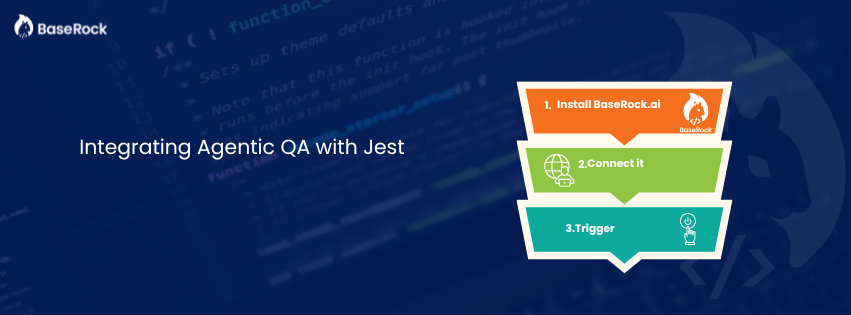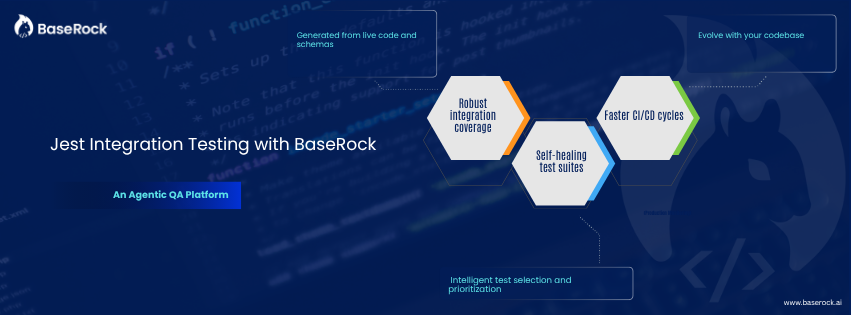.png)

In modern software development, integration tests bridge the gap between unit tests and end-to-end tests—ensuring components interact correctly. Jest integration testing offers speed and flexibility, especially when combined with Agentic QA and BaseRock, a platform that automates unit and integration testing using AI agents. This guide shows you how to harness these tools for robust, efficient testing.
Unlike unit tests, Jest integration tests verify how modules work together in a realistic environment. They help catch bugs in data flow, API interactions, and component collaboration.
Agentic QA enables AI-powered agents to automatically generate, run, and maintain integration tests. It alleviates brittle scripts by adapting tests as your code evolves
BaseRock AI¹ combines Agentic QA with seamless IDE and CI/CD integration, enabling autonomous test generation, execution, and updating—with real-world traffic and schema understanding.
Before you start, make sure you have:
These foundations let BaseRock analyze your code, generate mocks/data, and scaffold smart integration tests automatically.
Add to your package.json:
json
"jest": {
"testMatch": ["<rootDir>/integration/**/*.test.js"],
"setupFilesAfterEnv": ["./jest.setup.js"],
"testTimeout": 30000
}
This reserves an “integration” folder for scoped tests and configures setup routines and extended timeouts.

With Agentic QA enabled, BaseRock autonomously:
Organize tests like:
sql
integration/
├── auth.test.js
├── user-crud.test.js
└── payments.test.js
Each file tests service interactions (REST, DB, cache).
With BaseRock agents:
BaseRock can auto-mock external services, DB calls, and generate synthetic data—letting tests run in isolated CI environments with high realism.
BaseRock generates robust test files like:
js
test('POST /users creates new user', async () => {
const res = await request(app)
.post('/users')
.send({ name: 'Alice', email: 'alice@example.com' });
expect(res.status).toBe(201);
expect(res.body).toHaveProperty('id');
});
// Error case auto-generated:
test('POST /users missing email returns 400', async () => {
const res = await request(app)
.post('/users')
.send({ name: 'Bob' });
expect(res.status).toBe(400);
});
These tests—created from real app schemas and traffic—boost coverage and reliability with zero manual effort.
By combining Jest integration testing with Agentic QA and BaseRock, you're automating a traditionally manual process—achieving:

Mastering these tools shifts testing from a chore to a strategic advantage. Get started today with Agentic QA in BaseRock and level up your software quality.
Flexible deployment - Self hosted or on BaseRock Cloud